
Indian Institute of Technology Roorkee is a technical university located in Roorkee, Uttarakhand, India. It is the oldest engineering institution in India, and was founded as the College of Civil Engineering in North-Western Provinces in 1847 by the Lieutenant-Governor, James Thomason, in order to train officers and surveyors employed in the construction of the Ganges Canal. In 1854 , after the completion of the canal and Thomason's death, it was renamed the Thomason College of Civil Engineering by Proby Cautley, the designer and projector of the canal. It was renamed University of Roorkee in 1949, and again renamed IIT Roorkee in 2001. The institution has 22 academic departments covering Engineering, Applied Sciences, Humanities & Social Sciences and Management programs with an emphasis on scientific and technological education and research.
Joint Entrance Examination – Advanced (JEE-Advanced), is an academic examination held annually in India that tests the skills and knowledge of the applicants in physics, chemistry and maths. It is organised by one of the seven zonal IITs under the guidance of the Joint Admission Board (JAB) on a round-robin rotation pattern for the qualifying candidates of the JEE-Main. It used to be the sole prerequisite for admission to the Indian Institutes of Technology bachelor's programs before the introduction of UCEED, Online B.S. and Olympiad entries, but seats through these new mediums are very low.
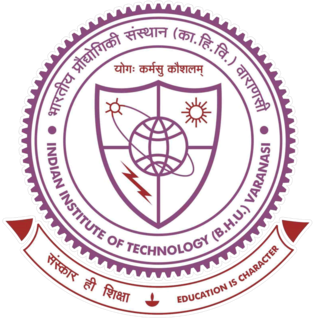
Indian Institute of Technology Varanasi(IIT-BHU) is a public technical university located in Varanasi, Uttar Pradesh, India. Founded in 1919 as the Banaras Engineering College, it became the Institute of Technology, Banaras Hindu University in 1968. It was later designated an Indian Institute of Technology in 2012. IIT (BHU) Varanasi has 16 departments, 3 inter-disciplinary schools and 1 Humanities & Social Sciences Section. It is located inside the Banaras Hindu University Campus.

Lords Institute of Engineering and Technology (LIET) is a self-financing Muslim Minority Autonomous Engineering College near Appa Junction, Himayath Sagar, Ranga Reddy district, Telangana, India, 11 km from Mehdipatnam.
The Graduate Aptitude Test in Engineering (GATE) is an entrance examination conducted in India that primarily tests the comprehensive understanding of undergraduate subjects in engineering and sciences for admission into postgraduate programs. GATE is conducted jointly by the Indian Institute of Science and seven Indian Institutes of Technologies at Roorkee, Delhi, Guwahati, Kanpur, Kharagpur, Chennai (Madras) and Mumbai (Bombay) on behalf of the National Coordination Board – GATE, Department of Higher Education, Ministry of Education (MoE), Government of India.
The Joint Entrance Examination (JEE) is an engineering entrance assessment conducted for admission to various engineering colleges in India. It is constituted by two different examinations: the JEE-Main and the JEE-Advanced.

Indian Institute of Technology Madras is a public technical university located in Chennai, Tamil Nadu, India. It is one of the eight public Institutes of Eminence of India. As one of the Indian Institutes of Technology (IITs), IIT Madras is also recognized as an Institute of National Importance.
OpenCourseWare (OCW) are course lessons created at universities and published for free via the Internet. OCW projects first appeared in the late 1990s, and after gaining traction in Europe and then the United States have become a worldwide means of delivering educational content.
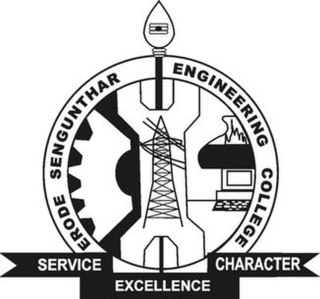
Erode Sengunthar Engineering College is an autonomous, private engineering college in Thudupathi, 5 km from Perundurai, 22 km from Erode, Tamil Nadu, India. It is affiliated with Anna University.

Indian Institute of Technology Bhubaneswar is a public technical university established by the government of India in 2008, located at Bhubaneswar, Odisha, India.

Madaboosi Santanam Ananth is an Indian academic who served as the director of the Indian Institute of Technology, Madras from 2001 to 2011. He was presented with The Herdillia award for excellence in basic research in chemical engineering.
The Indian Institutes of Technology (IITs) are a network of engineering and technology institutions in India. Established in 1950, they are under the ownership of the Ministry of Education of the Government of India and are governed by the Institutes of Technology Act, 1961. The Act declares them as Institutes of National Importance and lays down their powers, duties, and framework for governance as the country's premier institutions in the field of technology. The act currently lists twenty-three IITs. Each IIT has autonomy and is linked to others through a common council called the IIT Council, which oversees their administration. The Minister of Education of India is the ex officio chairperson of the IIT Council.

India has a publicly funded higher education system that is the third largest in the world. The main governing body at the tertiary level is the University Grants Commission, which enforces its standards, advises the government, and helps coordinate between the centre and the state. Accreditation for higher learning is overseen by 15 autonomous institutions established by the University Grants Commission (UGC).
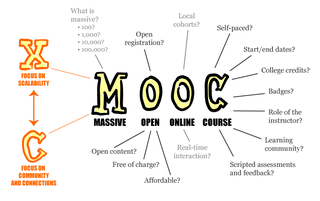
A massive open online course or an open online course is an online course aimed at unlimited participation and open access via the Web. In addition to traditional course materials, such as filmed lectures, readings, and problem sets, many MOOCs provide interactive courses with user forums or social media discussions to support community interactions among students, professors, and teaching assistants (TAs), as well as immediate feedback to quick quizzes and assignments. MOOCs are a widely researched development in distance education, first introduced in 2008, that emerged as a popular mode of learning in 2012, a year called the "Year of the MOOC".
Suman Chakraborty is a professor at the Indian Institute of Technology Kharagpur and Sir J. C. Bose National Fellow. He has been the first in the history of IIT Kharagpur to be bestowed by the National Award for Teachers in the Higher Education Category by the honourable President of India. He is also Institute Chair Professor Awardee of 2023. He has served as the Dean, Research and Development, Associate Dean and the Head of the School of Medical Science and Technology of the Institute. He has also been National Academy of Engineering Chair Professor. He joined the Institute in 2002 as Assistant Professor and has been a Full Professor since 2008.

SWAYAM is an Indian government portal for free open online course (MOOC) platform providing educational courses for university and college learners.
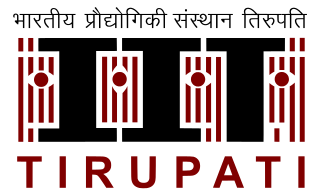
Indian Institute of Technology Tirupati is an autonomous engineering and technology education institute located in Tirupati, Andhra Pradesh. Initially mentored by IIT Madras, now IIT Tirupati, the fastest growing 3rd generation IIT is located in Yerpedu, Tirupati, and has a size of 539 acres, including a proposed research park. The Foundation stone for IIT Tirupati was laid by the Union Minister Smriti Irani and the then Union Minister and former Vice President of India M.Venkaiah Naidu and the then chief minister of Andhra Pradesh N. Chandrababu Naidu.
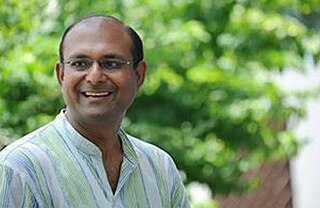
Balaji Sampath is an Indian educationist, social activist, the founder and secretary of a non-profit Organization, Association for India's Development, India chapter, an India-based NGO that carries out science teaching and primary school programs for children to aid their educational development.

National Institute of Technical Teachers' Training and Research, Chennai (NITTTR) is an autonomous educational institution under the Ministry of Education, Government of India. NITTTR Chennai is located in Tharamani in Chennai













